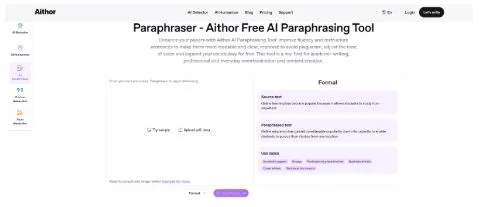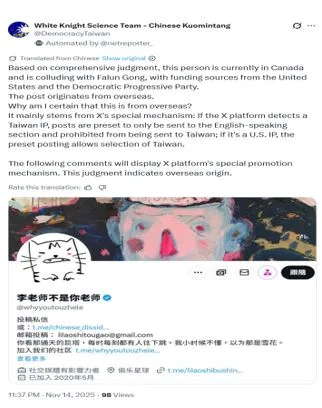How to Get Fertilizer and Soil Amendment Products Approved in the US, Canada, and Mexico
Selling fertilizer and soil amendment products in North America involves more than just creating a good product. Before entering the market in the United States, Canada, or Mexico, companies must follow regulatory steps to ensure their products meet safety and labelling standards.
This guide outlines the key approval processes in each country and provides helpful information to facilitate effective navigation of the registration requirements.
Why Fertilizer and Amendment Product Registration Is Required
Registration is a legal requirement that helps protect farmers, consumers, and the environment. It ensures that products:
- Contain what they claim on the label
- Are safe to use
- Are effective under recommended conditions
Each country has its laws and authorities managing these processes. Understanding the differences can help businesses avoid delays, reduce costs, and comply with local laws.
United States: Registering in Multiple States
State governments in the United States are responsible for registering fertilizer and amendment products, not the federal government. That means manufacturers must register separately with each state where they plan to sell.
State Departments of Agriculture review product formulations, labels, and nutrient claims. The process often includes submitting the following:
- Guaranteed analysis of nutrient content
- Safety data sheets
- Ingredient lists
- Product labels for review
Some states follow the guidelines of the Association of American Plant Food Control Officials (AAPFCO), which standardizes terms and definitions. However, specific requirements still vary by state.
Registrations often take 4 to 12 weeks to process, depending on the product type and the state’s workload. Most states also require annual renewals, with registration fees that can differ significantly.
Canada: Working with the CFIA
In Canada, fertilizer and soil supplement regulation is managed by the Canadian Food Inspection Agency (CFIA) at the federal level. Products that make claims related to soil enhancement, nutrient availability, or microbial action typically require registration.
The CFIA looks for:
- Clear labelling
- Scientific support for product claims
- Ingredient safety
- Quality control processes
If a product contains only standard nutrients (like nitrogen, phosphorus, and potassium) and makes no special claims, it may be exempt from registration. However, it must still meet general safety and labelling requirements under the Fertilizers Act.
For those requiring complete registration, timelines can range from a few months to a year, depending on the completeness of the submission and the complexity of the product.
Mexico: Approvals Through COFEPRIS and SEMARNAT
Mexico’s approval process involves two central agencies:
- COFEPRIS (Federal Commission for Protection Against Sanitary Risk)
- SEMARNAT (Secretariat of Environment and Natural Resources)
These agencies ensure that fertilizers and soil amendments are safe for human health and the environment. Products are evaluated based on chemical composition, intended use, and potential environmental impacts.
To register a product, manufacturers typically need to submit:
- Ingredient list and formulation details
- A safety data sheet (in Spanish)
- Environmental impact documentation, when applicable
- Labels translated to Spanish
Mexico’s registration process may also require coordination with local regulatory contacts or consultants, especially for imported products. Processing times vary and may be influenced by product type and the agency’s response times.
General Tips for Successful Registration
Preparing in advance can reduce delays and ensure smooth approvals across all three countries. If you are looking for guidance on how the process works across North America, visit the Fertilizer & Amendment Product Registration page for more information.
1. Keep documentation organized
Gather key materials early: product labels, ingredient lists, scientific studies, and safety data sheets.
2. Understand local terms and rules
Don’t assume requirements are the same in every region. Even basic terminology or label formatting may need adjustments.
3. Translate documents where needed
Mexico requires Spanish-language submissions. Inaccurate or incomplete translations may delay the process.
4. Monitor renewal deadlines
Many approvals need annual renewal. Missing a deadline can result in temporary removal from the market.
5. Track fee structures
Registration and renewal fees vary by location and product type. Please include them in the planning and budgeting process.
Avoiding Common Mistakes
Delays and rejections often come from:
- Submitting incomplete or outdated documentation
- Making product claims without supporting scientific data
- Using labels that don’t meet the region’s format or language rules
- Failing to follow up on regulator questions or renewal dates
Understanding these common issues can help businesses move through the approval process more smoothly.
Summary of Requirements by Country
In the United States, state departments of agriculture handle product registration. Companies must register separately in each state where they plan to sell. Many states follow AAPFCO guidelines, but requirements can vary. Keep in mind that renewal periods and fees differ across states.
In Canada, the Canadian Food Inspection Agency (CFIA) oversees fertilizer and soil supplement regulation at the federal level. Products that make claims usually require registration, while some standard fertilizers may be exempt. The process involves reviewing scientific data and ensuring compliance with labelling and safety standards.
In Mexico, two agencies—COFEPRIS and SEMARNAT—manage product registration. Approvals focus on safety, environmental impact, and proper classification. Spanish-language documentation is required, and working with local representatives is often recommended to streamline the process.
Moving Forward with Compliance
Securing approval to sell fertilizer and soil amendment products in the United States, Canada, and Mexico takes careful preparation and time. Each region follows its own rules, documentation requirements, and review timelines.
Understanding the process early helps companies avoid delays, reduce regulatory risks, and confidently expand into new markets. For those managing multiple product registrations or unfamiliar with local requirements, working with experienced consultants such as Brand Maven Consulting can offer clarity and structure to what can be a complex process.
Staying informed, organized, and proactive is key to moving forward with compliance in North America’s agricultural markets.





![How to Recover Data from Corrupted Hard Drive [6 Easy Methods]](https://businesnewswire.com/wp-content/uploads/2025/09/az-2168.webp)
